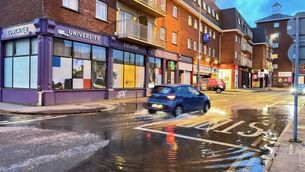Smoking ban breathed new life into pubs

A DECADE ago the wails of vintners rent the air at the prospect of paying customers leaving the smokey fug of pubs to indulge a habit that went hand-in-glove with sinking a few pints of the plain stuff.
Amid dire predictions that the workplace smoking ban would decimate their livelihoods, publicans suddenly developed a caring side, concerned, as they were, for the health of entire families. After all, outlawing cigarettes in the bar room would force smokers to light up at home, exposing the children of the nation to inordinate levels of second-hand smoke.













